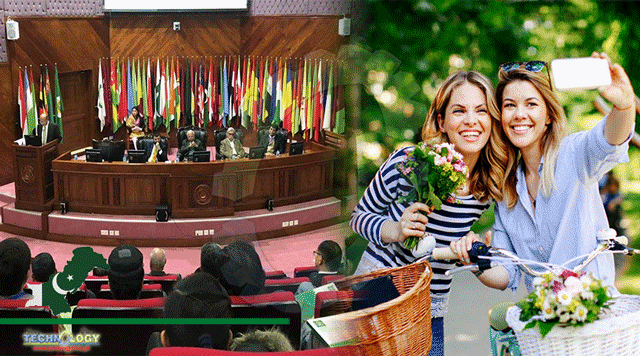COMSTECH Organized A Panel Discussion Session On Women’s Day. The Session Was Addressed By Dr. Khadija Yusoff, Prof. Dr. Tim Unwin, More.

COMSTECH Organized A Panel Discussion Session On Women’s Day. The Session Was Addressed By Dr. Khadija Yusoff, Prof. Dr. Tim Unwin, Dr. Rana Dajani, Dr. Sumbla Sheikh, and Prof. Dr. M. Iqbal Choudhary from Malaysia, UK, Jordan, Germany and Pakistan respectively. During this COVID19 period science emerged as savior of the humanity. Over last 11 months we have seen over 170 vaccines in different phases of development. This was only science that responded with speed and fulfilled the purpose, said Dr. M. Iqbal Choudhary, in his introductory remarks to the panel discussion session.
He said that women had played dual role to save the world by serving in the field and to save the humanity by serving their families. But at the end of the day they suffered. Women are the one who lost jobs, and also suffered in their professional career and growth. Dr. Choudhary said that we have to remain in COVID world for long. He lamented that in the developing world, when parents have choice to educate child, it would always be the male child, if they have choice to feed child properly, the girl child would be malnourished. He stressed the need to know the impact of COVID era on women, on their contribution to the scientific world, on their education, and on their future.
Dr. Khadija Yusoff, Universiti Putra, Malaysia, said in her lecture that COVID caused loss of lives and livelihood, disrupted all spheres of life including research teaching and learning. She suggested to have strategies for career development, good leadership, investment in advanced online teaching technologies by universities, time management and rethinking of promotion key performance indicators.
Prof. Dr. Tim Unwin, University of London, UK said that across the Muslim world there are a large number of women scientists, eager to contribute. He said that digital tech has a key role to play but will increase gender inequalities unless mitigating actions are taken. He said that cultural context remains critically important. Prof. Unwin suggested that we should have women champions. We need to change the men’s attitude and behavior to help women excel in Tech and STEM, if they are going to benefit the maximum they can.
He said that the most important things to change are the attitudes and approaches of SME CEOs who want to employ women. He mentioned that we must have tips for brothers who wish to support their sisters in STEM. Prof. Unwin also shared tips for brothers to support their sisters in STEM. He highlighted that the tech is very male dominated therefore men have responsibility to do something about it.
We need policies at national and strategic level. We also need practical tips and advice. Every man should think about what he can do as an individual for every woman in his life to help her in developing her expertise and liberate her in the world of STEM. We have responsibility, we cannot leave it to our sisters to empower themselves, concluded Prof. Unwin. Dr. Rana Dajani, Hashemite University, Jordan informed that we survived COVID because of curiosity – seeking beyond the frontier. All brains are equal, there is just lack of opportunities that are out there.
She said that the reasons of less women at workplace are not just lack of opportunities it is also the framework of the workplace which was designed by men for men when the industrial revolution happened. When women try to enter the framework they have to mold them to fit this frame without acknowledging the differences between men and women.
Prof. Dajani said that what I suggest is not that we can get more women into the workplace or get them in STEM. It should be a choice to work or stay at home and nurse the children for the women. Those who are privileged have a choice. Dr. Sumbla Sheikh of Tubingen University, Germany suggested to minimize the negative impact of COVID19, there should be training sessions to develop mindfulness exercises, and meditational techniques to relieve the stress caused by COVID19.
She said that gender disparity is deep rooted and stressed that policy should be focused to root out gender disparity and governments should enact the policies. We really need to strive hard to get rid of it. The panel discussion was attended by more than 175 participants online from OIC member states.